How Words Change How You See Yourself, Others, and How You Live Your Life
Learn about some words that are powerful to me, and think a little bit about the power of your words.
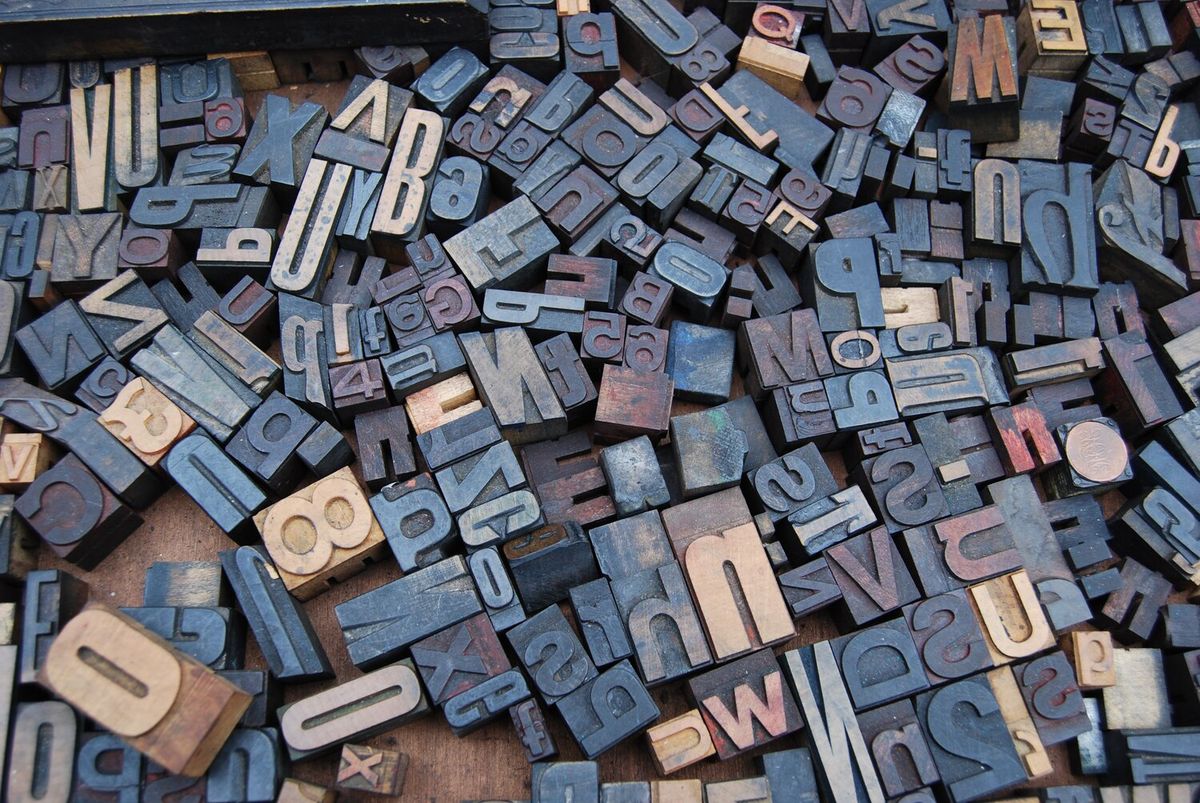
I have been thinking about words a lot lately. We use and experience words all day and there are endless opportunities to listen to, speak, and read them. That’s pretty powerful.
I have been thinking about how powerful. There is power in how you listen to them, how you say them, and which ones you use. There are even certain words that, in learning them, have changed how I see myself, how I see others, and even how I live my life.
I want to share some of these words, share why they are powerful to me, and hopefully get you to think a little bit about the power of your words.
How words have changed how I see myself and others

Photo by Ugur Akdemir on Unsplash
I keep learning over and over again how impactful it is to have words to describe how I feel. I love the feeling of revelation when I can see myself in a word or phrase and understand a way of being that I have been experiencing but didn’t have a name for. Equally enlightening is learning words that describe and help me better understand someone else’s way of being. When I find these words, they give me a new frame or a way of noticing. It’s like gathering puzzle pieces to fill in the holes of how I see myself and others and, in turn, how I behave.
- I have learned to be a better listener. I try to hear the words as they are said and understand, instead of waiting for someone to finish speaking so I can share my own words.
- I have gotten better at considering how my words might impact the people I say them to before they leave my mouth. To contain words that are unnecessary, or unhelpful and to say the ones that might make a difference, or that are kind or supportive.
- I have learned to ask before giving advice and I am trying to remove ‘you should’ from my vocabulary. Sometimes words of empathy, or validation, or even no words are what is needed.
- I have learned how often I soften my words (which my husband diligently edits) to try to make myself a little less vulnerable. It reminds me how much more work I need to do on myself.
I try to make (at least some of) my words count. Even writing this blog is an effort to give words and meaning to others.
Words that have made a difference in my life
These are some examples of words that have played a part in my understanding of my way of being:
Impostor Syndrome
In 2014 I attended a conference by the Alberta Women Entrepreneurs. One of the speakers presented on impostor syndrome, the idea that you’ve only succeeded due to luck and not because of your talent or qualifications. The feeling of being an impostor or fraud. This was a phrase that wasn’t (to my knowledge) as widely used at that time. As the speaker gave voice to things I had felt a thousand times, I remember sitting in the audience and feeling seen. I looked around the room and saw hundreds of other women nodding along and felt a little less alone. The words ‘impostor syndrome’ gave a name to something I often experienced, had even experienced that day, but also became something I could share with others.
Even more powerful was having these words let me notice when it was happening. There have been many situations over the years where I avoided doing something that I didn’t know for certain that I would be good at. Experiences I have missed out on. There have been (and occasionally still are) situations where I felt like I am in a room where I do not belong, that I am a fraud and can feel myself shrinking. I get quieter and quieter, afraid to share my opinion, lest I am judged for it.
Now, I am usually able to notice when I am afraid, when I start to shrink, and I know what it is. I know it is impostor syndrome, and I am learning to push through. I am able to try things I might be bad at and remember all the reasons I belong, and all the reasons I am allowed to have an opinion, regardless of the judgement of others.
Introversion and Extroversion
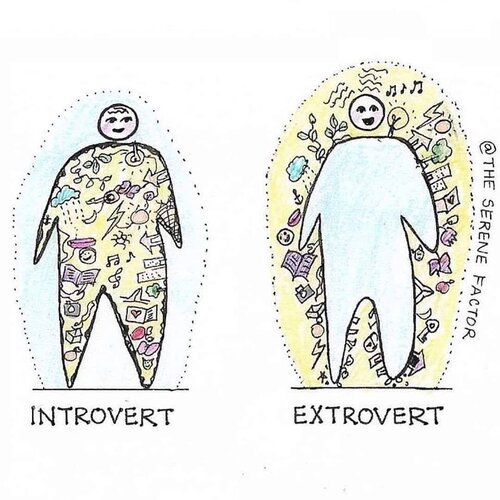
Over the last decade, learning about introversion and extroversion (in relation to energy) has made a huge difference in my understanding of my own energy needs, as well as the energy needs of others. Generally speaking, extroverts get energy from being around others and get drained by being alone, and introverts get energy from being alone and get drained by being around others. This is of course a spectrum and there are other aspects and nuances to both, but getting clarity on this dynamic clicked one of those puzzle pieces into place for me. I learned that I was not, in fact, shy, but rather introverted. How I felt after being in meetings or going to an evening business event, or a concert, or a party, made so much more sense.
Understanding where I fit in those words changed how I plan my days and weeks and how I take care of myself. I am careful about overbooking myself and know the activities that drain me, and the ones that recharge me. I am able to make decisions about when I work on certain types of tasks, when I take meetings, and how many interactions, even with friends, I plan in my week. I know to listen to my body and when it is telling me I need a break from other humans. I even teach about introversion and extroversion to others through my coaching so that they too can maximize their energy.
Emotional Granularity
I recently published a post on using a metaphor to describe stress levels (A Glass of Stress). The metaphor of a glass of water with the water level rising up and down in response to the stressors in my life gives form to stress in a way that helps me pay attention to it. It gives me a way to notice, talk about, and manage it so that my glass doesn’t overflow. Words that, in turn, create an image. Neat.
The same day I published that post I came across this article on emotional granularity, and how being able to “clearly identify our feelings or by recategorizing them, we can reduce suffering and increase well-being”. It was timely and reinforced the idea that having the right, or even just more, words can have an incredible impact. There is a fascinating nuance in having the right words to describe how you are feeling.
Languishing
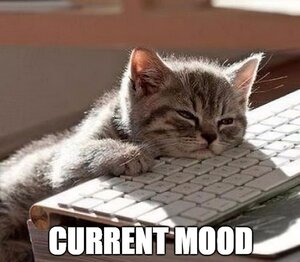
A friend shared a New York Times article that provided the word ‘languishing’ as a way to describe the feeling of “stagnation and emptiness” many people have been experiencing for much of the pandemic. It’s a feeling I have had many times since Covid started but didn’t have a word for. That lack of drive, motivation, and general ‘meh/bleh’ feeling. It was another ‘aha’ moment. There have been so many days where I have felt so drained and lazy, dragging myself through the hours.
I have more space in my life than ever before and have often felt guilty for not using it “better”. It has sometimes felt like an opportunity lost, as I sit in bed and watch something mindless. Languishing gives context to these feelings. It reminds me that I am not alone in this feeling and that it is ok to not be performing or achieving all the time (a feeling I already fight with constantly). My glass of stress, like most everyone in the world, had been fuller than normal. I also know the things I can try to elevate my mood or, at the very least, understand why I am feeling this way, and give myself a bit of grace.
Russel Conjugation
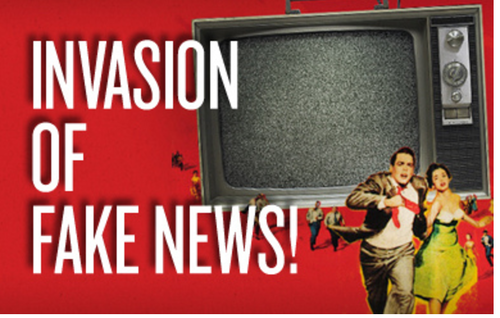
My husband sent me an article on Russell Conjugation because he knows how much I love words. It means to use words or phrases that are technically synonyms, but that have different emotional connotations. I like knowing the name of this. It makes me think about the way the media, and people in general, use words to manipulate.
Tom Dehnel shared these examples:
- I am thorough, you could benefit from streamlining your writing, they are a long-winded bore.
- A politician you support reconsidered the matter in light of new evidence, but the politician you don’t support flip-flopped.
- Your own child is self-assured, but the neighbour’s son is a brat.
Now that I know what it is called, I have been seeing it everywhere. Every headline, every article, every Tweet. It’s clever but sometimes also disheartening. While Russel Conjugation isn’t inherently bad, it reminds me that there is a frame for everything. There is no such thing as unbiased writing because, well, people are biased. Everything I read is now seen through a new lens, which is neat. It has made me a more conscious reader which I think is more valuable now than ever before.
The power of MY words
Throughout all this reflection I have been thinking about the power of my words. How they can change the direction of my businesses if I communicate what we do, who we are, and who we serve well enough to capture the right people's attention.
In my coaching, I think carefully about the words I say to my clients. I am often working to reframe their perspectives in different ways. The words I choose can change the way they think about themselves, their work, and their lives. Knowing my words can have that kind of influence is humbling
I have been thinking about the words I say to myself. They are not always kind and are in fact often harsh. I sometimes say things to myself that I would never, in a million years, say to someone else. I have to catch myself when my inner critic gets too loud and consciously work at shifting my perspective. I am (very slowly) learning to afford myself the same kindness I try to give others.
The power of YOUR words
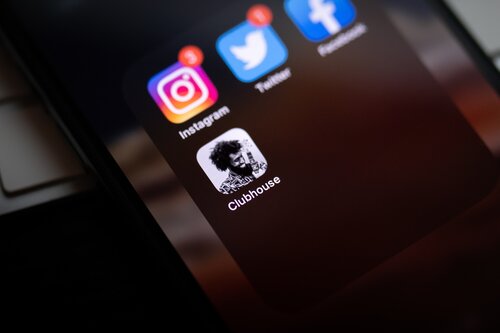
Photo by William Krause on Unsplash
As ever, there are a lot of words happening in the world. Sometimes it is an overwhelming amount and they are often angry and loud (though with good reason). It’s easy to get swept up in the tide of them and unleash your own torrent of frustration. To let the anonymity of a screen embolden your words and say things you might not if you were looking someone in the eyes. That’s not necessarily a bad thing. It can in fact be freeing, but it is worth a pause. It’s even easier to consume them without thinking about how they are impacting how you feel, and how that impacts other parts of your life.
Do you ever think about the power of your words? How the things you post on social media are read by real people? How the words you speak to your children, your partner, your friends, even acquaintances, can stick with them. How they can change how they see themselves and the world? Do you ever think about how much power your words have to hurt or soothe, escalate or ease, raise up or bring down?
I hope you do. I hope reading this makes you think a bit more about your words because they matter more than you know.
Share
Ashley Janssen

Productivity consultant, writer, speaker, serial entrepreneur, chaos calmer, introvert, cat-lady. Lover of books, fitness, old fashioned’s, basketball, and video games.
Follow me on
Twitter
or
LinkedIn.
Hire me for
1 on 1 productivity consulting
or
speaking.
Related articles

4 Steps to Dispel The Fall Scaries

How to Stay Productive When Things Calm Down
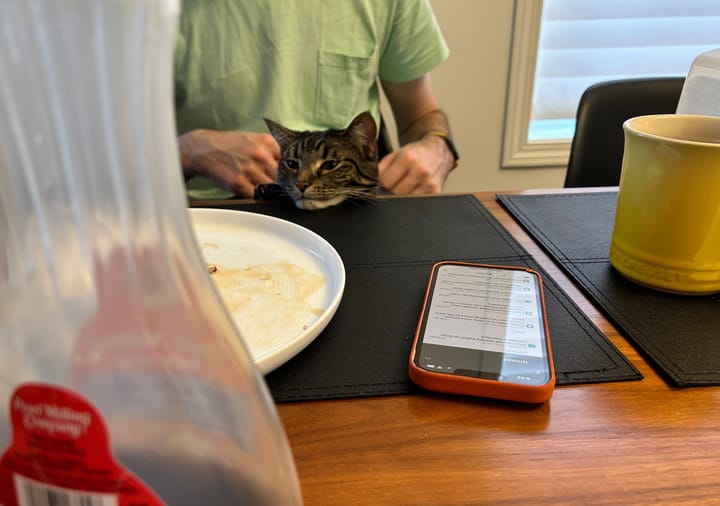

Comments ()